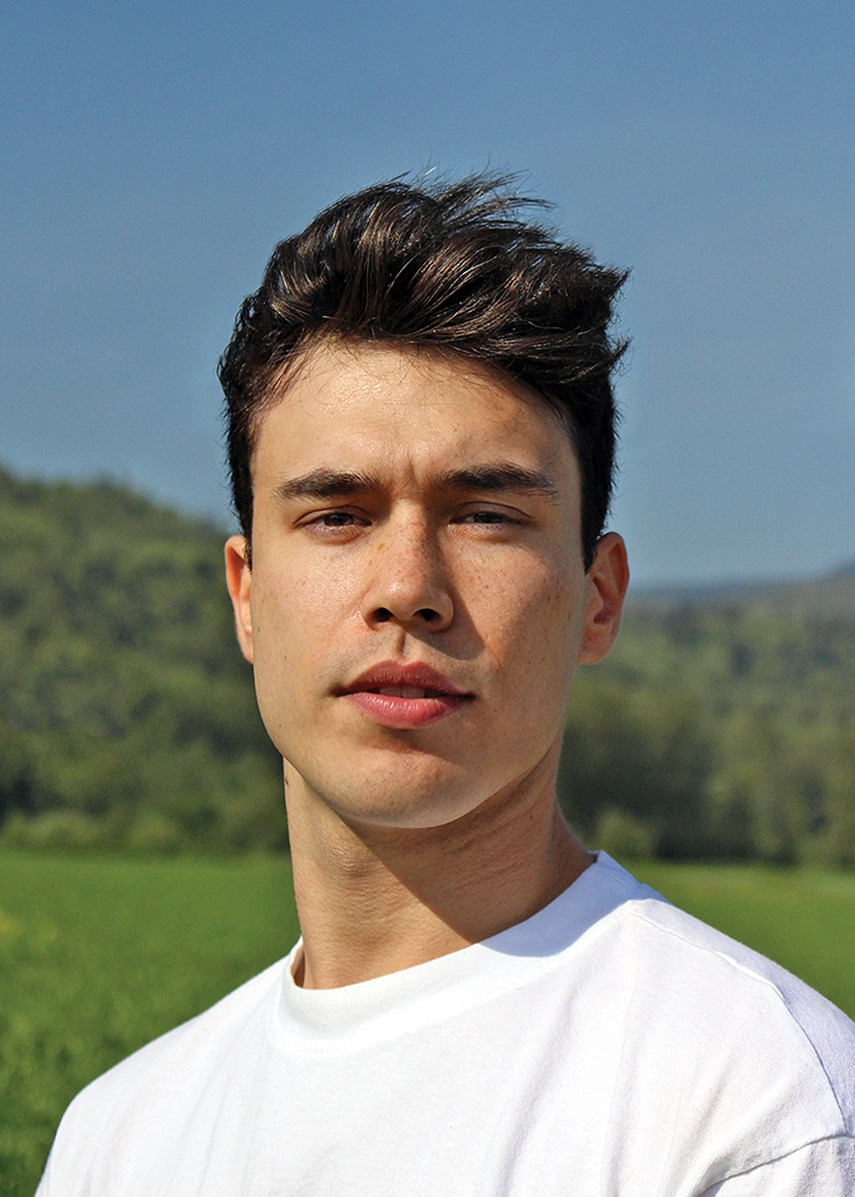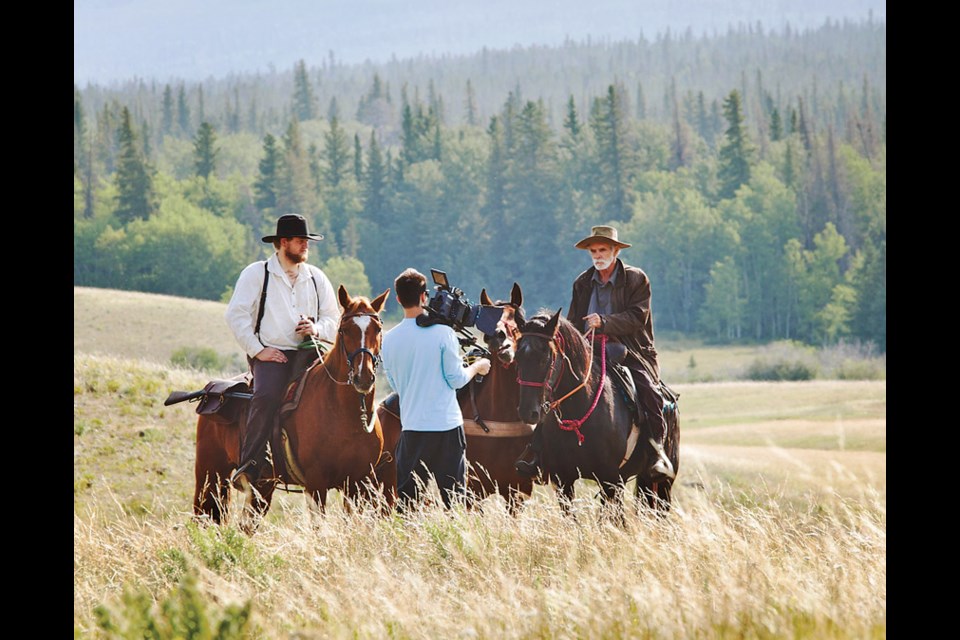Indigenous Film Series with Trevor Mack, North Vancouver City Library, Feb. 8, 6:30 p.m. For more information visit nvcl.ca.
Making art can be a risky business.
Filmmaker Trevor Mack knows this to be true – his early forays behind the camera involved a risky endeavour of which many young people might have strove to undertake, one involving going higher, higher, higher!
“I got into filmmaking by making trampoline videos in my backyard with my friends and my cousins,” Mack, now 26, tells the North Shore News. “We would just be doing tricks and jumping off the trampoline. … I found myself directing my cousins and friends from the trampoline – where they should put the camera and, ‘Hey, maybe you should stand up on that ladder and then jump off the ladder as I’m jumping off, it’ll look really cool.’”
His interest in movie making was piqued at an early age, but it was years later before he really heard his passion calling.
At 19, Mack, a member of Tsilhqot’in First Nation in the B.C. Interior, moved to Vancouver to pursue film school at Capilano University. Although he didn’t end up staying in school for long, he was there long enough to learn a few things about himself.
“I was meeting all of these new kids from all over Canada, all over the world, and I remember having classes of introductions asking, ‘Who are you? Where do you come from?’ I would say, ‘Hey, I’m Tsilhqot’in, this is where I come from,’” he explains, before noting: “I really didn’t know as much as I should have, I think, at that point.”
His first short film, The Blanketing, was released in 2013, when Mack was 21 years old. The eight-minute movie chronicles a confrontation between a group of First Nations people and a pair of colonizers looking to build a road through their land. It was the first time that Mack had used his skills behind the camera to explore a part of his own cultural past.
The movie screened across North America and New Zealand at festivals like the Vancouver Indigenous Media Arts Festival, Toronto Independent Film Festival, and imagineNATIVE Film + Media Arts Festival, where it was well received.
“When I first moved to Vancouver, and I was interested in learning about my own culture more, it was the perfect concoction of creativity, curiosity and placement where I was in a position to start my first short film,” says Mack. “In the process of making The Blanketing I was interviewing elders, really talking to spiritual leaders, and it gave me a whole new connection to my community.”
Mack grew up on the Tl’etinqox reserve, close to nearby Williams Lake. Mainly raised by his grandparents, his early years were spent attending school on the reserve followed by going to high school in Williams Lake.
“We take pride in the nature and the mountains that we have, and the river. Tsilhqot’in means ‘People of the river,’ so we’re very proud of how we can harvest salmon and game,” says Mack, of the idyllic landscape where he grew up.
But he also recalls a certain amount of apathy regarding the Indigenous experience when he was growing up, even from First Nations themselves. “I remember growing up in Williams Lake for high school, where we had Tsilhqot’in class, and none of us in the class paid attention nor cared really because we were grown up and taught English is more important to get jobs.”
That apathy, says Mack, stemmed from the residual effects wrought by the residential school system on the previous generation of First Nations, who had to resist as attempts were made to strip them of their sense of place, their Indigeneity, and their identity.
“They took that experience to our generation,” says Mack, noting the way trauma moves from generation to generation, era to era.

Since making The Blanketing, Mack has put out numerous short films exploring a diverse number of themes, from Anna Marina (2017), filmed on location in Spain and tracing a foreigner who meets a local woman and the pair share an intimate connection among the dreamy streets of Barcelona, to last year’s documentary In The Valley of Wild Horse, which looked at the annual 200-kilometre route travelled by horse and wagon by the Xeni Gwet’in community from the Nemiah Valley to the famous Williams Lake stampede.
“We have to look at our stories that we’re telling of our own people,” says Mack, adding that he doesn’t want to keep the cycle of trauma going with the stories he tells. “That’s what colonization is – a people stuck in a cycle where they’re retelling stories about themselves that have no theme of positivity, defiance and adversity.”
He’s currently working on his first feature film, Portraits From a Fire, which follows “a young Indigenous teenager on a reserve that discovers his parents’ past by rewatching their old wedding tape.” The film examines community, suicide and, ultimately, acceptance and defiance, says Mack.
The inaugural program of North Vancouver City Library’s new Indigenous Film Series will feature a screening of Mack’s films, followed by an interactive discussion with the filmmaker. The event, which is taking place Friday, Feb. 8, will allow the audience to take in Mack’s story about his culture, his filmmaking process, and how his background has influenced his unique storytelling.
When describing the final frame of The Blanketing – which features a group of Tsilhqot’in ancestors standing in defiance against aggressing colonizers before the picture suddenly shifts focus to show the Tsilhqot’in people as they appear today – Mack says the image is meant to elicit a message of how his people have overcome and defied past experiences.
“These people, we’re still here.”



